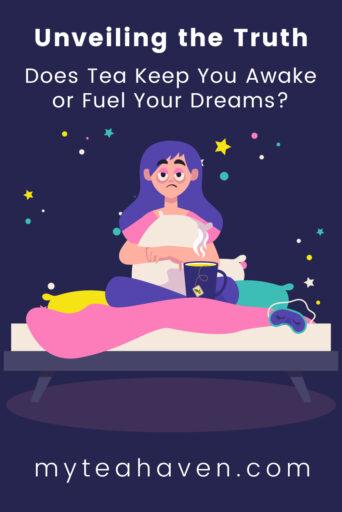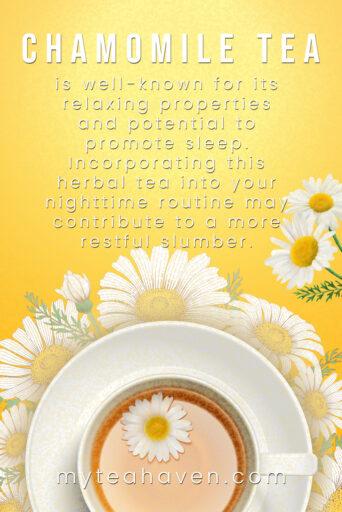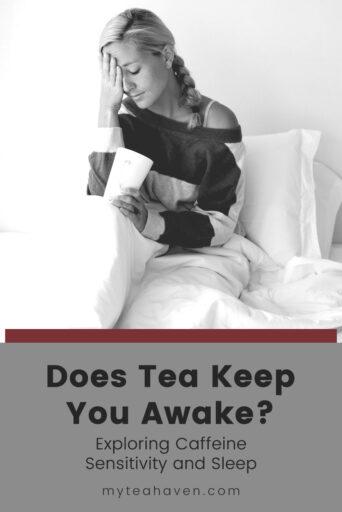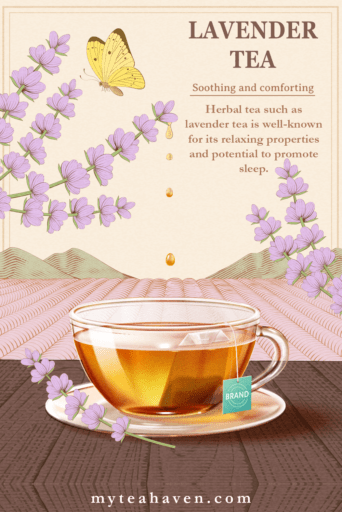Unveiling the Truth: Does Tea Keep You Awake or Fuel Your Dreams?
Does Tea Keep You Awake?
Like many people around the world, I do so love a cup of tea before bed. But whenever I have trouble falling asleep, I worry if my late-night tea drinking has robbed me of slumber or if it’s simply an innocent indulgence wrongly taking the blame for something else. As such, I have explored this topic extensively and discovered intriguing information that I wish to share with you!
We are a participant in the Amazon Services LLC Associates Program, an affiliate advertising program designed to provide a means for us to earn fees by linking to Amazon.com and related sites. This post may contain affiliate links which means we may receive a commission, at no cost to you, for purchases made using our links. Please see my disclosure to learn more. Unless otherwise stated, all prices are in US$.
Understanding the Components of Tea
To understand how tea can potentially keep us awake, we must first understand its key components: caffeine and theanine.

Caffeine Content in Tea
As we discussed before, caffeine is a natural stimulant found in tea. It acts on our central nervous system by keeping us alert and awake.
But it’s important to remember that the amount of caffeine varies among tea types and brewing methods. While black tea tends to have the highest caffeine content, green tea and white tea generally contain lower amounts.
Herbal teas, such as chamomile or peppermint, are naturally caffeine-free, making them a suitable choice for those sensitive to caffeine’s effects.

HANDPICK Chamomile Tea Bags
Indulge in the enchanting flavors of our chamomile teas, where the soothing essence of chamomile meets a delightful floral twist. Our chamomile tea offers a true taste of nature, allowing you to savor the soothing and floral notes that make chamomile a beloved herbal infusion.
Theanine in Tea
In addition to caffeine, tea also contains an amino acid called theanine. Theanine is known for its ability to induce relaxation and reduce stress. It can have a calming effect on the brain, potentially counteracting the stimulating properties of caffeine. This unique combination of caffeine and theanine sets tea apart from other caffeinated beverages.
Other Factors Affecting Wakefulness
Apart from caffeine and theanine, other factors can influence wakefulness. Individual tolerance to caffeine, the time of consumption, and the types of tea consumed play crucial roles in determining the impact on our sleep patterns.
The Effect of Caffeine on Wakefulness
Caffeine’s stimulating properties are well-documented, and its impact on sleep is an area of interest for many tea drinkers.
Stimulant Properties of Caffeine
Caffeine acts as an adenosine receptor antagonist, blocking the adenosine molecules responsible for promoting sleep. By binding to these receptors, caffeine prevents drowsiness and promotes wakefulness. This wakefulness-inducing effect is why many individuals turn to caffeine-rich beverages to combat fatigue.
How Caffeine Affects Sleep
Consuming caffeine close to bedtime can definitely disrupt your sleep patterns. It takes approximately two to twelve hours for half the amount of caffeine consumed to be eliminated from the body.
Indulging in a strong cup of tea or coffee late in the evening could therefore delay sleep onset, reduce total sleep duration, and negatively impact the quality of sleep experienced.

The Role of Theanine in Tea
While caffeine in tea can promote wakefulness, the presence of theanine offers a potential counterbalance.
Calming Effects of Theanine

Theanine is often referred to as nature’s relaxant. It possesses the ability to calm the mind without inducing drowsiness. It stimulates the production of alpha brain waves, which promote relaxation and enhance mental clarity.
Theanine’s presence in tea provides a soothing experience, complementing the stimulating effects of caffeine.
Counteracting Caffeine’s Effects
Theanine’s interaction with caffeine is of particular interest. Research suggests that theanine may counteract some of caffeine’s negative effects, such as jitters or increased heart rate. By promoting relaxation and reducing stress, theanine can create a harmonious balance when consumed alongside caffeine.
Factors Influencing Individual Sensitivity
While caffeine and theanine have defined properties, it’s always important to keep in mind that individual sensitivity to these components can vary significantly.
Several factors contribute to this variability.
Personal Tolerance to Caffeine
Each person’s tolerance to caffeine is unique. Some individuals can consume substantial amounts of caffeine without experiencing any adverse effects on sleep, while others are more sensitive. Better understanding your own personal tolerance can help regulate tea consumption and minimize sleep disturbances.
Time of Consumption
When you drink your tea is another important factor. As the day progresses, it’s advisable to reduce caffeine intake to avoid interference with sleep. Enjoying tea earlier in the day allows sufficient time for the body to metabolize caffeine before bedtime, ensuring a restful night’s sleep.
Tea Types and Their Caffeine Content
Tea types and blends vary in their caffeine content. Green and white teas generally contain less caffeine than black or oolong teas.
Additionally, choosing decaffeinated versions or herbal infusions guarantees a caffeine-free experience.

Experimenting with different tea varieties can help individuals find the right balance between enjoyment and sleep quality.
Suggestions for Late-night Tea Consumption
Based on what we now know about how tea can influence our ability to fall asleep, here are a few suggestions for my fellow tea lovers:
Limit Caffeine Intake Before Bedtime
To ensure a good night’s sleep, it’s advisable to limit caffeine consumption several hours before bedtime. Go for caffeine-free herbal teas or decaffeinated tea options during the evening to avoid potential disruptions to your sleep routine.
Experimenting with Tea Types and Blends
Explore the diverse world of tea by trying various types and blends. Discover the nuances of different tea varieties, such as green tea, white tea, black tea, or herbal infusions. Pay attention to how your body responds to each tea type, allowing you to make informed choices that align with your personal sleep preferences.
Combining Tea with Other Relaxing Rituals
Enhance the calming effects of tea by incorporating other relaxation rituals into your routine. Pairing a soothing cup of tea with activities like reading or taking a warm bath can create a serene environment conducive to winding down before sleep.
A Few Final Thoughts
So, does tea keep you awake? As we can see, tea can indeed be a culprit in keeping us awake due to the presence of caffeine. That being said, tea’s ability to keep us awake isn’t entirely black and white. The calming effects of theanine and various other factors also influence the overall experience.

By understanding your personal sensitivity to caffeine, choosing the right tea types and blends, and establishing mindful consumption habits, you can continue enjoying tea while maintaining healthy sleep habits!

HANDPICK Valerian Root Tea Bags
Treat yourself to the delectable and aromatic experience of our caffeine-free Valerian Root Tea. Our expertly crafted blend combines Valerian Root with the exquisite flavors of licorice, lemongrass, cardamom, and peppermint. Indulge in a cup of our Valerian Root Tea to unwind after a long day, or simply to enjoy a moment of tranquility.
Some Questions You Might Have
- Is it true that all tea contains caffeine?
While tea does naturally contain caffeine, the amount varies depending on the type and brewing method. Herbal teas, such as chamomile or peppermint, are naturally caffeine-free alternatives.
- Can I drink tea before bedtime if it’s labeled as decaffeinated?
Decaffeinated tea still contains trace amounts of caffeine, although significantly reduced compared to regular tea. It’s advisable to consume decaffeinated tea in moderation before bedtime to avoid any potential sleep disruptions.
- Will switching to herbal tea completely eliminate any sleep-related concerns?
Herbal teas are naturally caffeine-free, making them a suitable choice if you’re concerned about caffeine’s impact on sleep.
- Can I add milk or sweeteners to my tea without affecting its impact on sleep?
Adding milk or sweeteners to tea can enhance its flavor but won’t significantly alter its impact on sleep. That being said, be cautious with additives like flavored syrups or highly caffeinated tea blends, as they may increase the caffeine content.
- Are there any herbal teas known for promoting sleep?
Yes! Several herbal teas, such as chamomile, lavender, or valerian root, are well-known for their relaxing properties and potential to promote sleep. Incorporating these herbal infusions into your nighttime routine may contribute to a more restful slumber.







